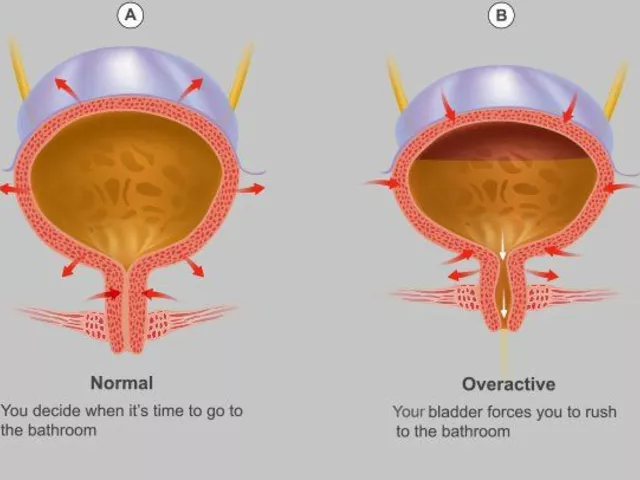Understanding Resistant Hypertension
Before we delve into the role of Telmisartan in managing resistant hypertension, it's crucial to understand what resistant hypertension is. This form of hypertension is a blood pressure condition that remains uncontrolled despite the use of at least three different high-blood-pressure medications. Often, it is challenging to manage and can increase the risk of heart disease and stroke significantly.
Resistant hypertension can be a complicated health issue, potentially leading to various complications. It's essential to seek effective treatment methods to control this condition and reduce the potential health risks. This is where Telmisartan comes into the picture. So let's delve into the role of this drug in managing resistant hypertension.
The Potency of Telmisartan
Telmisartan is an angiotensin II receptor blocker (ARB) commonly prescribed to treat high blood pressure. It works by blocking the action of certain natural substances that tighten the blood vessels, allowing the blood to flow more smoothly and the heart to pump more efficiently.
It's not just the potency of Telmisartan that makes it a go-to drug for managing resistant hypertension. The drug also has a longer duration of action compared to other ARBs. This means that it can control blood pressure for a more extended period, making it an excellent choice for patients with resistant hypertension.
Telmisartan and Other Antihypertensive Medications
One of the key reasons why Telmisartan is effective in managing resistant hypertension is its compatibility with other antihypertensive medications. The drug has been shown to work well in combination with other hypertension drugs, such as diuretics, calcium channel blockers, and beta-blockers.
This compatibility is crucial as resistant hypertension often requires a combination of different drugs to manage effectively. Therefore, the ability of Telmisartan to work well with other medications can be instrumental for patients struggling with resistant hypertension.
Evidence from Clinical Trials
Several clinical trials have demonstrated the effectiveness of Telmisartan in managing resistant hypertension. For instance, the ONTARGET study showed that Telmisartan was as effective as ramipril, a commonly used ACE inhibitor, in reducing cardiovascular morbidity and mortality in high-risk patients.
Furthermore, the PRITCH study demonstrated that a combination of Telmisartan and amlodipine, a calcium channel blocker, was more effective in controlling blood pressure than a combination of amlodipine and placebo. These studies, among others, provide solid evidence of the role of Telmisartan in managing resistant hypertension.
Side Effects and Contraindications
While Telmisartan has proven to be a valuable tool in managing resistant hypertension, it's worth noting that it may not be suitable for everyone. Like all medications, Telmisartan can cause side effects, including dizziness, lightheadedness, and increased potassium levels.
Furthermore, Telmisartan is contraindicated in patients who are allergic to it or other ARBs. It's also not recommended for pregnant women, as it can harm the unborn baby. Therefore, it's always essential to discuss these factors with your healthcare provider before starting Telmisartan.
Conclusion: The Role of Telmisartan in Managing Resistant Hypertension
In conclusion, Telmisartan plays a crucial role in managing resistant hypertension. Its potency, long duration of action, compatibility with other antihypertensive drugs, and proven effectiveness in clinical trials make it a viable option for patients struggling with this condition.
However, as with all medications, it's essential to consider the potential side effects and contraindications. Always consult with your healthcare provider to determine if Telmisartan is the right choice for you.






vinod mali
Telmisartan saved my dad's life after three other meds failed. No drama, just worked.
Now he runs 5Ks. Crazy how one pill changes everything.
Jennie Zhu
The angiotensin II receptor blockade conferred by telmisartan demonstrates a statistically significant reduction in ambulatory blood pressure variability, particularly in patients exhibiting non-dipping circadian patterns. Its pharmacokinetic profile, characterized by a prolonged half-life and high volume of distribution, supports once-daily dosing regimens with enhanced adherence potential.
Kathy Grant
I used to think hypertension was just a number on a screen... until my best friend almost lost her kidney to it. Telmisartan didn't just lower her BP - it gave her back her mornings. The quiet walks, the coffee without dizziness, the laughter that didn't come with a headache. Sometimes medicine isn't about fixing a system. It's about restoring a life. 🌿❤️
Matt Wells
While the ONTARGET study is frequently cited, it is imperative to note that the non-inferiority margin was set at 1.13, and the primary endpoint included a composite of cardiovascular death, myocardial infarction, stroke, and hospitalization for heart failure - outcomes that are not exclusively attributable to telmisartan’s antihypertensive efficacy. Furthermore, the PRITCH trial’s methodology lacked adequate adjustment for baseline salt intake, a critical confounder in ARB response.
Margo Utomo
So you're telling me a drug that costs $4 a month can outperform a cocktail of $200 pills and actually let people sleep at night? 🤯
Meanwhile, Big Pharma is selling 'premium hypertension solutions' with glitter in the capsule. 🙃
Someone tell the CEOs to stop selling fear and start selling science. #TelmisartanForTheWin 💪💊